ACIVS 2025 Conference in Tokio
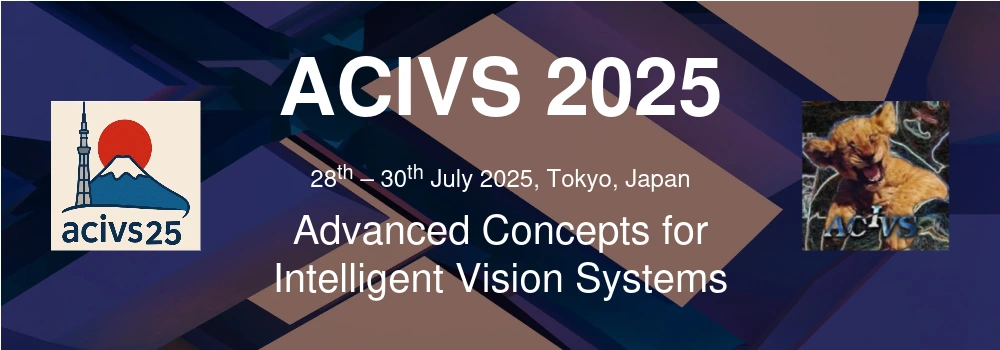
The 22nd Advanced Concepts for Intelligent Vision Systems (ACIVS) Conference was held in Tokyo, Japan, from July 28-30 at the University of Electro-Communications (UEC) Chōfu campus. This event, organized by the ACIVS Program Committee, focused on cutting-edge techniques for creating adaptive, intelligent, safe, and secure imaging systems. Attendees had a unique opportunity to present their research, exchange ideas, and network with peers. Beyond the keynotes, oral presentations, and poster sessions, the conference also offered additional activities, including visits to a temple, UEC research labs, and the UEC Telecommunication Museum. To learn more about the ACIVS conference series, visit their website acivs.org, whereas, for more information about this year’s edition select ACIVS 2025.
Our contribution
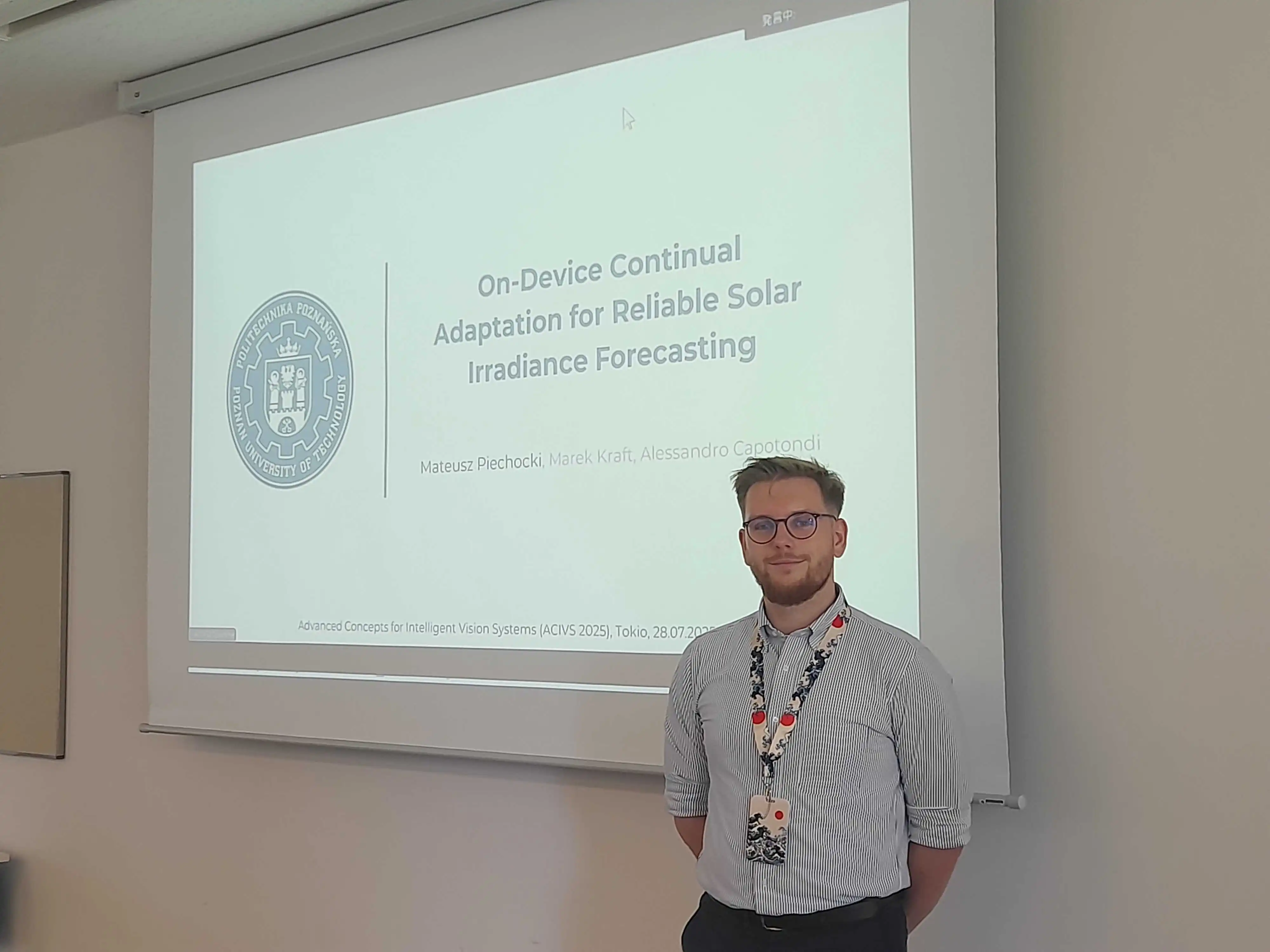
During the Computer Vision and Machine Learning session, Mateusz represented the PUT Vision laboratory, presenting his research on solar irradiance forecasting and adaptation to new sites and incoming data. His presentation, titled “On-Device Continual Adaptation for Reliable Solar Irradiance Forecasting”, was a collaborative effort with Marek Kraft and Alessandro Capotondi (from the University of Modena and Reggio Emilia). Mateusz highlighted how the inherent uncertainty of solar energy, mainly due to unpredictable weather, impedes its large-scale integration into power grids. He then introduced a continual adaptation strategy based on an incremental learning method that significantly improves forecasting accuracy to address this challenge, also bearing in mind edge computing limitations.
This work was supported by the ‘PhDBoost’ Program for doctoral students of the Doctoral School of Poznan University of Technology (in 2024) from the University’s subsidy financed from the funds of Ministry of Science and Higher Education.
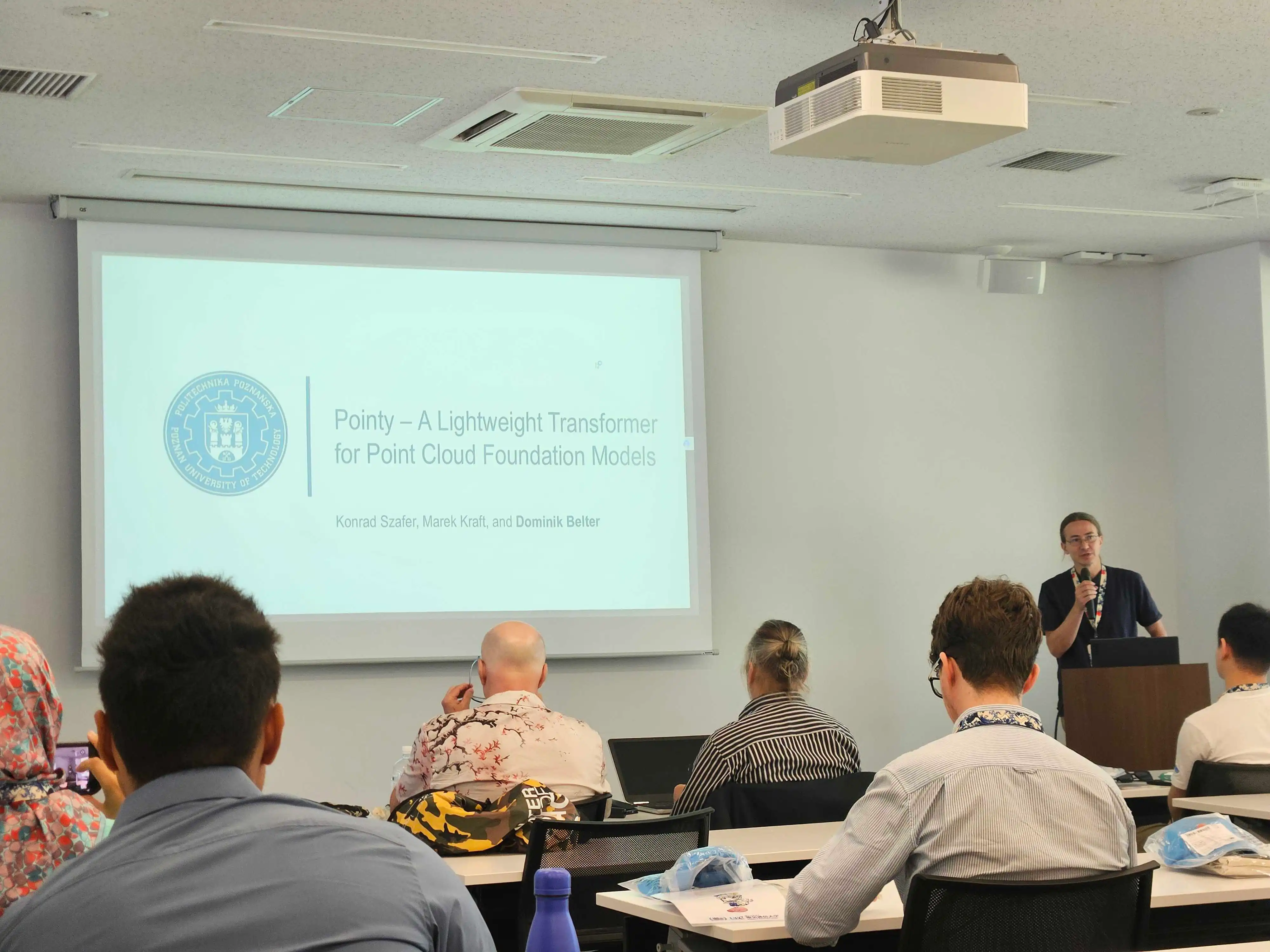
In the same session, Dominik Belter, director of the Institute of Robotics and Machine Intelligence, presented his work. Entitled “Pointy – A Lightweight Transformer for Point Cloud Foundation Models”, the presentation focused on foundation models for point cloud data and was a collaborative effort of Konrad Szafer, Marek Kraft, and Dominik Belter.
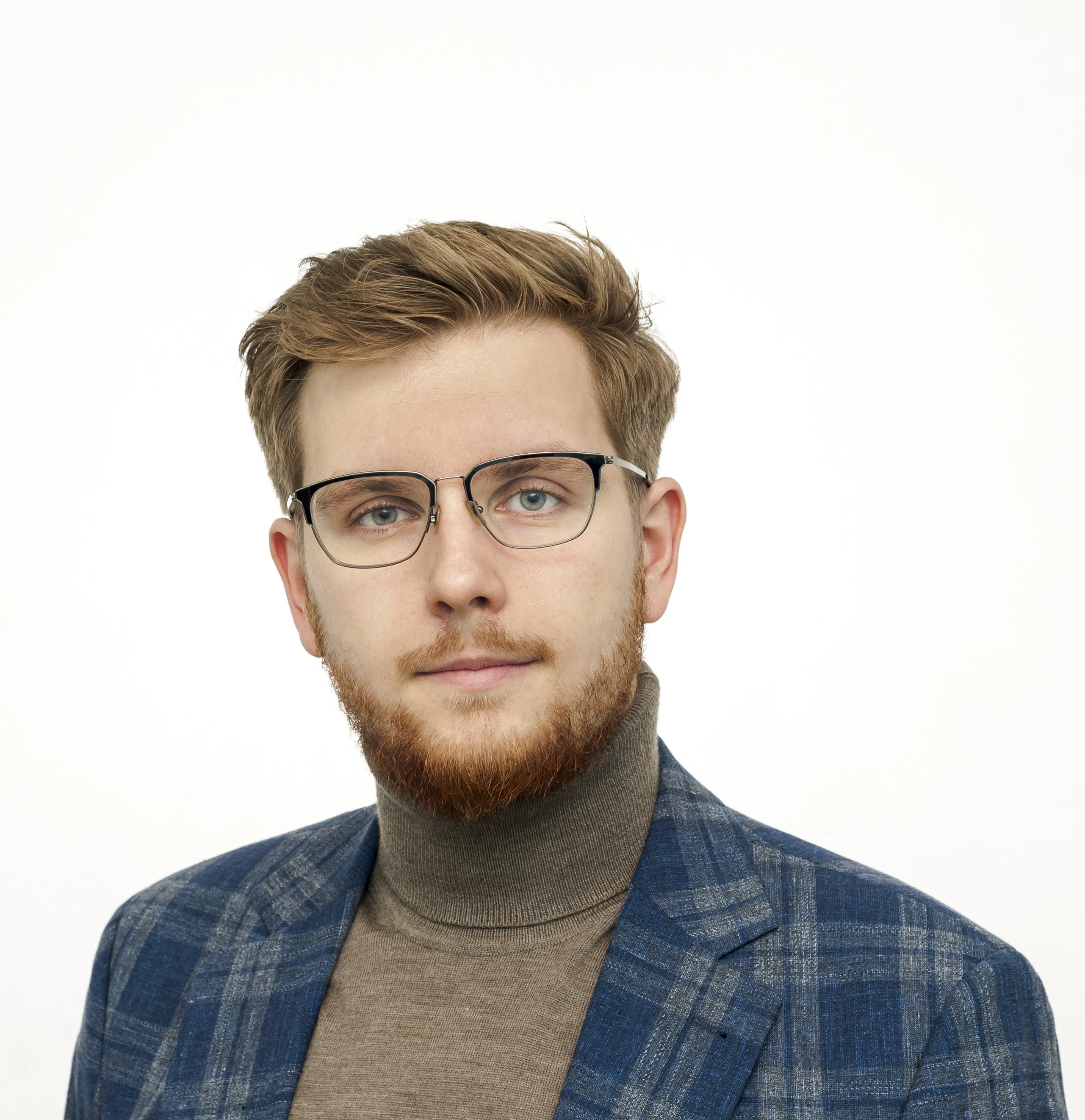
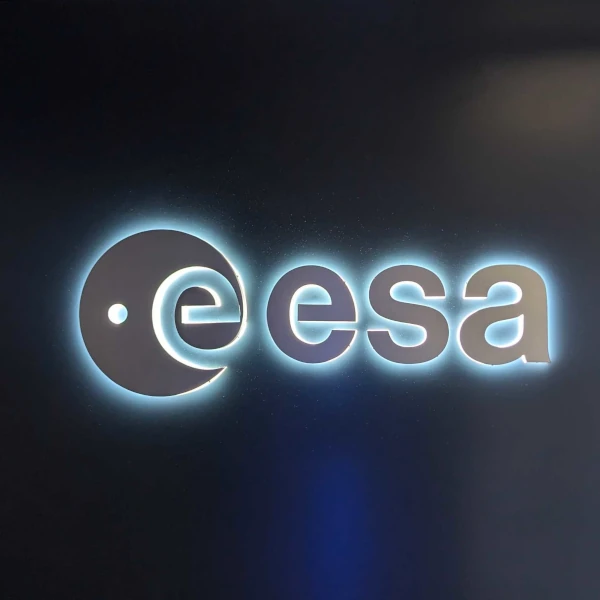
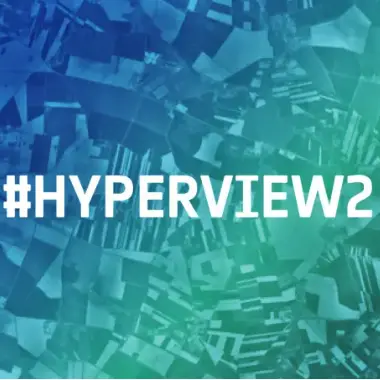
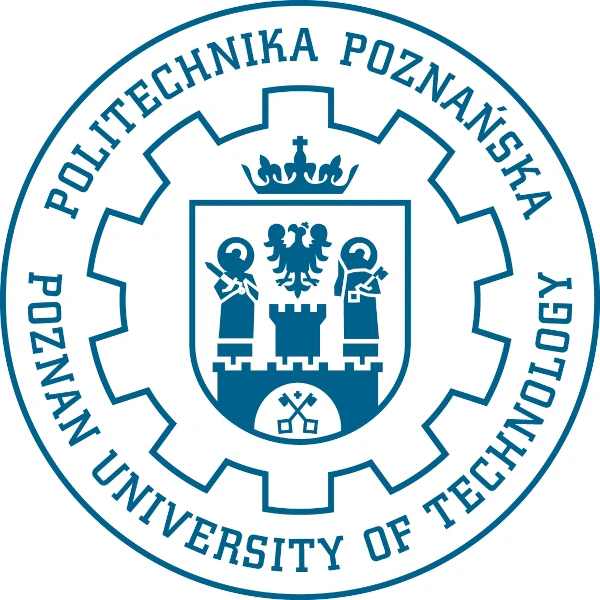
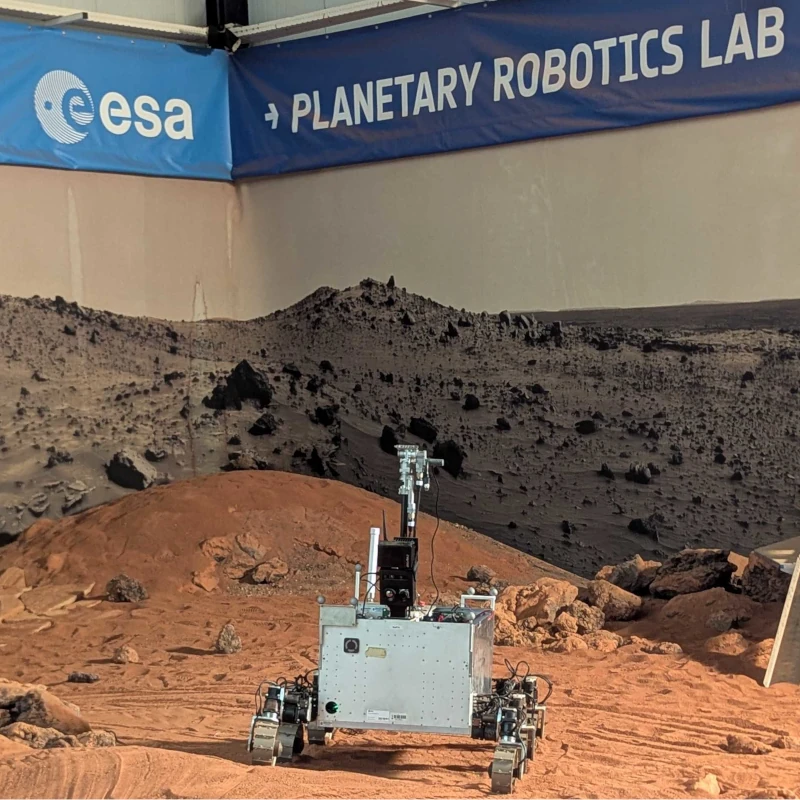
Comments